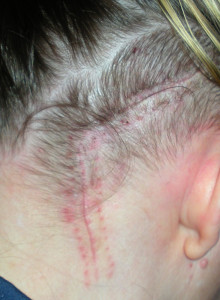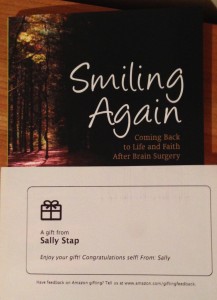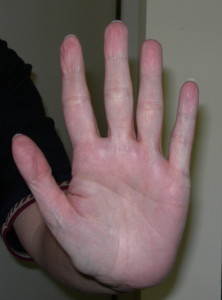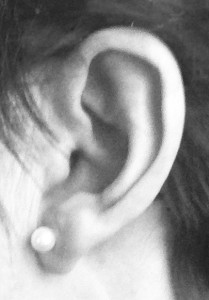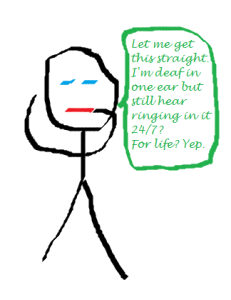Brain surgery was the easy part. I slept through it. The moment I woke in incredible pain is when got difficult. Despite the intricate skills of two brain surgeons, I was now suffering from a Traumatic Brain Injury (TBI). I didn’t recognize at the time that I was entering the “in-between.” I was stuck between who I had been and someone I didn’t know yet.
Brain surgery left me with the recognition that I’m not who I used to be. I do know that I am far from alone. TBI effects brain tumor patients, accident victims, and soldiers fighting for our country. With advances in the medical community, more people are surviving traumatic medical events than ever before. A mystery to the medical field, TBI leaves many unanswered questions.
I struggle with my desire to deny disability’s grasp on my life while continually having to adapt to its grip. Chronic, oppressive head pain is disabling, but it can’t be seen – or proven. Navigating the “in-between” is a new reality. I am fortunate to have my mental faculties, but am exhausted by head pain, hearing issues, and facial therapy. Yes, exhausted by the extra effort my brain requires to sort desired from undesired sensory input.
Adrenaline gets us through what we need to live but then our brains demand down time.My “Job” is now seeking answers, treatment, and relief. Everyone has their own journey through the forest of the unknown.
Once trauma happens to the brain, remnants cling for years or life. However, it needs to be noted that “living with TBI” includes the word “living.” I had heard there would be a “new me” but I wasn’t done with the old one. In pursuit of contentment, I eventually accepted that the old me was gone and acknowledged the new one. To my surprise, I found joy. I wish I had known before I fought change so hard that there are things to cling to and others to let go of. I wish I had known to accept, grow, and live. For me it was the loss of a career yet the gain of writing. The loss of speed yet the advantage of measured observation.
The experience of having an Acoustic Neuroma(AN) and resulting traumatic brain injury is very individual even as we seek camaraderie with others. Common threads that I’ve seen in AN people are the choice of life, a decision to share humor, and nonstop perseverance. That strong common thread compels us to move forward without being dragged back any more than we have to be. We continue to laugh and love. Even in this new dimension.


